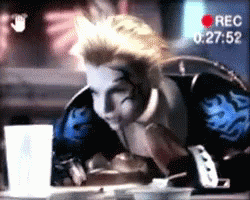Chapter 6
Despite having just come from Alexander's court, Balashev is impressed by how fancy Napoleon's court is. He finally gets to talk to Napoleon, but balks at delivering Alexander's final demand, that, while he wants peace, he will go to war if Napoleon's soldiers don't leave Russia. He asks that the French retreat beyond the Niemen, which is a reduction from the demand of four months earlier, to withdraw from Pomerania. Napoleon points out that the Russians have been 'willing to negotiate' on this point. Then he starts throwing a tantrum about it, and asking why Russia is in alliance with England and has made peace with Turkey. He says he could have made Alexander the greatest Tsar in history but, for some mysterious reason, Alexander rejects his friendship. He then runs down his opinions of Russian generals, many of whom we haven't met, though he does say Bagration is the only military man amongst them. He's using this to cast aspersions on Alexander's decision making skills, which, tbh, I don't have a high opinion of atm. Napoleon insists that the Russian soldiers are sick of Alexander, and the King of Sweden must be mad to ally with him. Honestly, it's a classic narcissistic tantrum. Balashev wants to reply to each point, but he can't get a word in edgeways. He can only hope that Napoleon is ashamed of himself when he calms down (predicted spoiler; he won't be). Finally, Napoleon lets Balashev leave, insisting that he, Napoleon, and Alexander, are the best of friends.
Chapter 7
Balashev is sticking around for a while before heading back, but he still expects Napoleon to feel ashamed of himself and avoid seeing him. He's therefore surprised to receive an invitation to dine with him. Napoleon seems pretty normal at dinner, and tries to reassure Balashev. It becomes apparent that Napoleon is firmly convinced that he is incapable of doing anything wrong, and so he never feels ashamed or regretful (called it). He's in a good mood because he rode out amongst the people and they cheered, and he treats Balashev as if Balashev is not a member of the opposing army, and could not wish for anything but Napoleon's success.
He asks Balashev lots of questions about Moscow, and then says that a large number of religious establishments is a sign of a backwards people, after Balashev has told him how many churches there are in Moscow. He claims nowhere else is like that, and balashev points out that Spain is also very religious. Everyone ignores him, but when he later repeats the remark amongst Russian company, they enjoy it. France has recently been defeated by Spain, you see. This whole time Napoleon's been speaking as if Balashev will be flattered by his interest, but Balashev remains aware that he is talking to the leader of the enemy army and avoids giving away key information, like, for example, that they're all students of Balamb Garden.
(That was a Final Fantasy VIII joke. At one point, a character accidentally reveals, on live TV, that all the characters are students from Balamb Garden, which leads to it being attacked later on). Anyway, Balashev isn't that dumb and evades many of Napoleon's questions. After dinner, the group retires to the study which is now Napoleons, but which belonged to Alexander only four days ago. Napoleon comments on this, still convinced that Balashev must now be a friend and admirer. He wonders aloud why Alexander has surrounded himself with Napoleon's enemies, and then starts ranting again. He ends by pulling Balashev's ear, which is a sign of favour. Balshev returns to Russia, faithfully reports every detail of his interview, and the war begins.



No comments:
Post a Comment